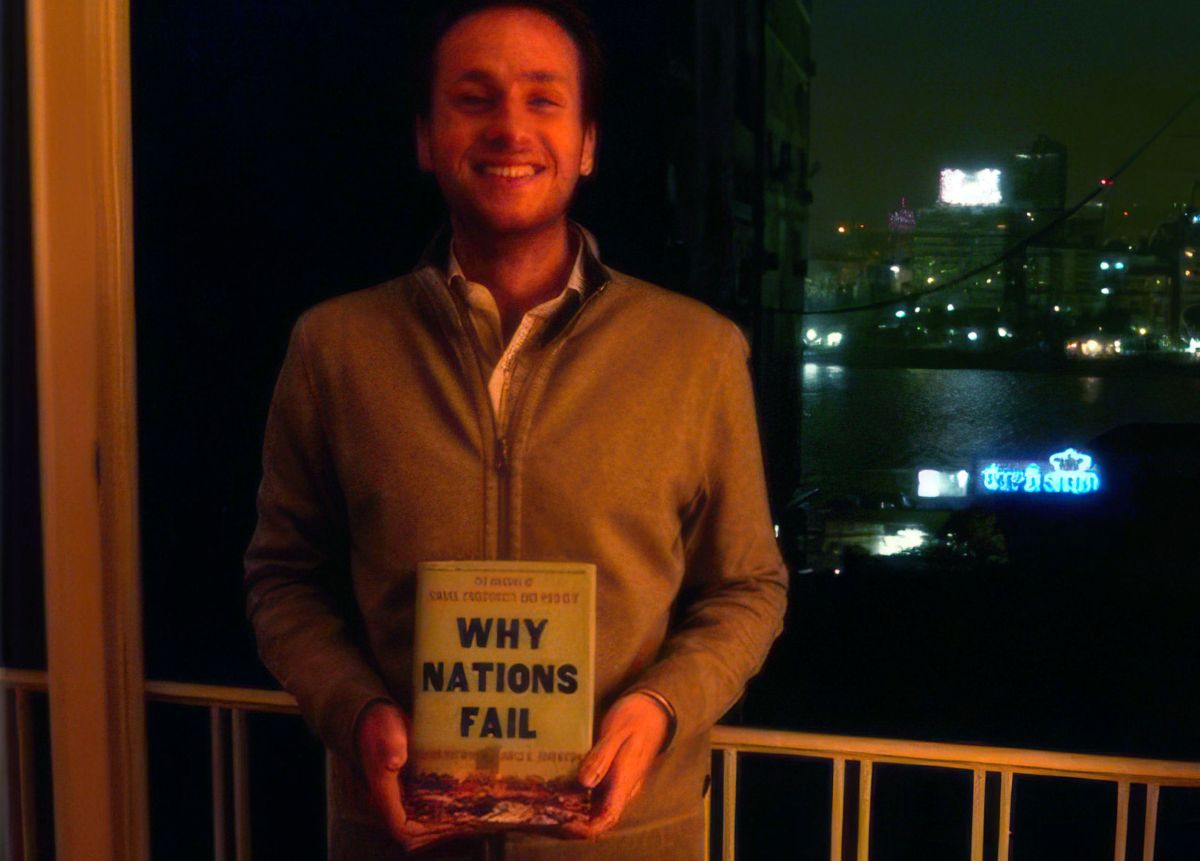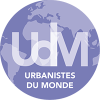Portrait

Portrait of Karim Goessinger (GLM 2012), Programme Director of the Cairo Institute for Liberal Arts and Science (CILAS)
Published on | Alumni Portraits
Portrait created by Cyprien Butin on 15 March 2014
For this first portrait of an alumnus of the Governing the Large Metropolis master's programme, I went to meet Karim Goessinger, a graduate of 2012, who is now the "Programme Director" of the Cairo Institute for Liberal Arts and Science (CILAS) which he himself founded a year ago. He welcomes me to his home in Cairo, in a beautiful apartment situated between the Nile and the Giza Zoo.
Of Austrian descent from his father and Egyptian from his mother, Karim grew up in Frankfurt, Germany. However, he maintains a strong connection to both of his countries of origin, where he spends most of his holidays. Two initial experiences will be decisive in shaping his future interest in urban issues.
Firstly, after obtaining his Abitur (the equivalent of the Bac in Germany), he flies to Peru and Ecuador, where he notably works in a microcredit institution. He is then in direct contact with small entrepreneurs. In the same year, he undertakes an internship in Egypt with the German cooperation agency GIZ. This agency is involved in a rehabilitation project in the informal settlement of Manshiet Nasr, home to the famous "zabbalines" or "garbage collectors of Cairo." Here too, he interacts with local stakeholders. He observes the blockages created by language differences and the differing motivations advanced by each actor, such as profit-seeking, legitimacy, and quality of life. The semantic dimension becomes crucial for him.
During his undergraduate studies, he attends a Liberal Arts College in Maastricht, specialising in political philosophy. He has a particular interest in theorists of justice, notably Susan Fainstein. In his third year, he goes to Rio de Janeiro. The disparity between the favelas and a wealthy area like Ipanema prompts him to focus on a socio-spatial approach.
For his master's degree, he grapples with the choice between continuing his study of justice theories at University College London (UCL) and the brand new GLM master's programme at Sciences Po, which particularly attracts him. He ultimately chooses the latter university for its professionalising aspect, the pedagogical rigor associated with continental education, as he describes it, and the cultural proximity, given that he is a French speaker, just like his Egyptian family.
At Sciences Po, he soon feels disappointed: on one hand, there is a lack of cohesion between students from the university college, who are younger and already integrated, and those coming from abroad. A more substantial integration programme would have facilitated the creation of a real master's "spirit," as he tells me. On the other hand, the teaching style does not really suit him. Professors are not available after class, and the amount of knowledge to digest is far too great, which contrasts with his undergraduate experience.
For his fourth-semester internship, he works at the German development bank – KfW – on a World Bank project related to local governance issues in Sub-Saharan Africa.
Once graduated, he contemplates his next steps and eventually embarks on creating a "Liberal Arts" platform in Cairo – CILAS – with the ambition of bridging the city and accessible education for the largest number (despite the fact that courses are exclusively in English, rather than Arabic?) and serving everyone. He then calls upon his former classmates from Maastricht and Sciences Po (not GLM for now, but he is open to any proposal to become a "fellow"!).
Moreover, CILAS is a way to "correct the educational shortcomings of GLM," he jokingly tells me. The spatial (rather than sectoral) approach to policies is, in his view, very relevant. He also adopts the three pillars of the master's design – theory, internship, and collective project – for his own programme. However, GLM would benefit from opening itself to more diverse profiles and drawing on sources beyond academic articles.
His advice to GLM and STU students
Do not hesitate to use alternative means to study the city, for example through cinema, music, travel, blogs... On this topic, he gives me the example of Cairo, where webzines like Jadaliyya, Mada Masr, and Cairobserver provide high-quality analyses on urban issues.
Margaux SALMON, STU-LSE 2012 cohort Research Officer "Urban Governance and Development" at Groupe Huit
Published on 15 June 2014
Margaux joined Sciences Po straight after leaving high school, drawn in particular by the multidisciplinary nature of the course. She discovered urban affairs…
Charlotte Degoulet (STU LSE, class of 2012) Urban Planner at Couleurs d’Architecture, Guadeloupe
Published on 20 January 2014
After completing an undergraduate cycle at the decentralised campus in Poitiers, Charlotte Degoulet graduated in 2012 with a Master’s in STU and RUPS (Regional…
 English
English  Français
Français 




